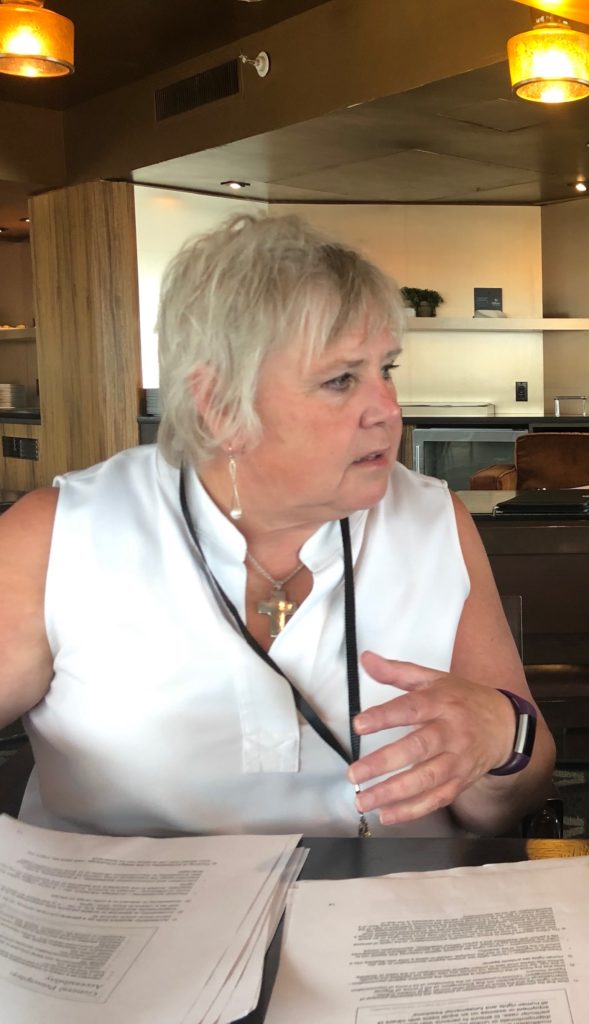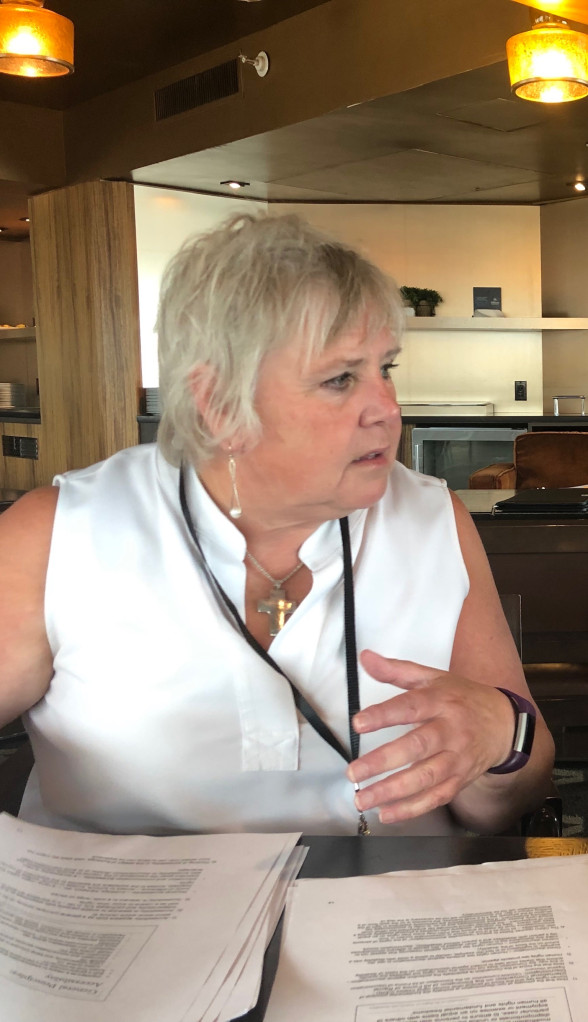 Christine Thelker
Christine ThelkerDAI Board member Christine Thelker was listed to make a Civil Society Statement on behalf of Dementia Alliance International and our Strategic Partners Alzheimer's Disease International on Wednesday of this week during Round Table 2 of the 12thSession of the Conference Of State Parties on the Convention on the Rights of Persons with Disabilities, also the session being co-chaired by Kate Swaffer.
Round Table 2: Social Inclusion and the Right to the Highest Attainable Standard of Health
Read the full stament here which was prepared ij response to the theme of the session. Unfortunately the session was cut from 3 down to 2 hours, so she didn't get to make the statement on the day. However, there was an opportunity to make a shorter verions of it at a Side Event yesterday, which we will share soon, including with a video of her speaking. The recording of our Side Event, Dementia: the leading cause of disability is also available online now.
Prepared Civil Society Statement:
Distinguished Chairs, speakers and delegates
Thank you for the opportunity to make this statement on behalf of Dementia Alliance International, the global voice of 50 million people living with dementia and Alzheimer’s Disease International today, who are our strategic partners.
As partnering international organisations, we collaboratively advocate for the rights of all persons with dementia and their families.
The 2030 Agenda sets out an ambitious goal vision to reach and empower those left behind.
As one of the 50 million people with dementia, I am being left behind.
Furthermore, women and girls are disproportionately affected by dementia. More women than men live with the condition, they provide the majority of care support and they also face the greatest stigma.
Women also make up 2/3 of dementia care supporters and more than 70% in lower and middle income countries. Older women, especially widows, can be exposed to what has been termed a ‘triple jeopardy’ discriminated against, as a result of their age, sex and condition.
I am here today to ask you to help me claim my rights as a person with disabilities to empowerment and social inclusion and the highest standard of universal health care.
Articles 19, 25 and 26 of the CRPD respectively address my rights to live independently in my own home in the community, without fear of being institutionalised and segregated, due to health and disability services and support not being in place to support me to live independently.
As a person with acquired cognitive disabilities that may cause communication, personality or other changes to my capacity to function without support, I demand my right to non-pharmacological support to live with a high quality of life, and am not chemically or physically restrained.
The lack of education and awareness of dementia of health care professionals and service providers, compromises my right and ability to access adequate services. Article 25 clearly states I must be able to access health care. Currently, people with dementia are being denied this.
Secondary to my dementia, as a person with younger onset dementia, I am being further denied support to live well in my community, support to maintain independence and access to health care.
It is therefore imperative we ensure health care providers are adequately educated in dementia, and those of us living with it are supported as people with cognitive and other disabilities to live a high quality of life in our community.
This is our fundamental right.
Governments, international civil society and partners around the world must get behind this global challenge and unite for a world where no one living with dementia is left behind.
Thank you.
Christine Thelker
Board Member
Dementia Alliance International
